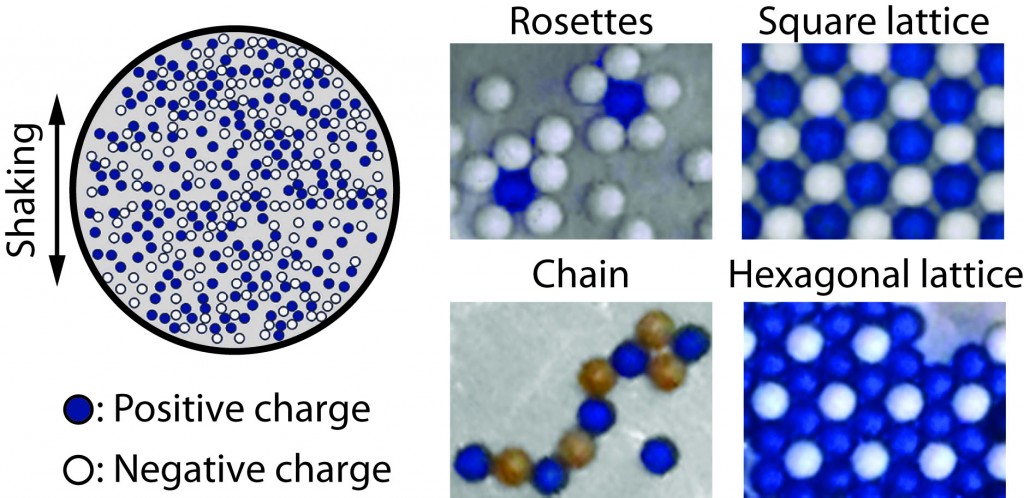Generating solids from liquid and gases via crystallisation is an important process both theoretically and technologically. In this hot paper, scientists from Harvard University in the group of George Whitesides, describe a model system for studying the self-assembly processes important in crystallisation. In particular they study millimeter-sized objects in systems in which charge-charge interactions dominate. The authors find that self-assembly is robust. Closely-packed crystalline structures are formed under many distinct experimental conditions. At least three classes of structure can be formed during self-assembly: crystals, chains and rosettes.
A simple two-dimensional model system to study electrostatic-self-assembly
Soft Matter, 2012, 8, 9771. DOI: 10.1039/c2sm26192h (free to read for a short time)
Follow the latest journal news on Twitter @softmatter or go to our Facebook page.
To keep up-to-date with all the latest research, sign-up to our RSS feed or Table of contents alert.











